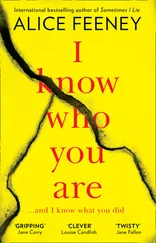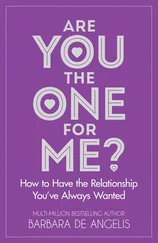I was out on the pool deck by a few minutes after seven. I wondered if Richard had watched the 1980 games. He said that Russians didn’t know anything about marketing, but they were savvy enough to brand their games with Misha the Bear. The mascot was everywhere, even floating over the closing ceremonies as a giant bear-shaped balloon. On the wall of the pool, huge Cyrillic letters proclaimed the Olympic motto: 


 Faster, Higher, Stronger. I was about to get into the very pool the American swimmers were denied the chance to compete in because of the boycott.
Faster, Higher, Stronger. I was about to get into the very pool the American swimmers were denied the chance to compete in because of the boycott.
Two old men were crawling down the lane on the far right, and in the center a flabby woman was breaststroking toward me. She wore a rubber cap with flowers on it, like the ones from the 1950s. The room was hot, and the suffocating smell of chlorine put me in a dreamlike state. I half expected to see Jenny emerge from the water in her yellow bathing suit. “Two out of three!” she’d say whenever I beat her to the end of her backyard pool. She couldn’t bear to lose.
If I could see Zoya in a bathing suit, I could check for the birthmark. If the birthmark was there, I decided I’d give her the money, however vague her reasons for wanting it. I crouched at the edge of the pool and splashed water on my latex cap to make it slick enough to put on easily. I can’t go into an indoor pool without thinking of my high-school team. Outdoor pools are for summer frolicking, but indoor pools I associate entirely with hard work. Sprints and drills. Sets on intervals. Only the truly dedicated swim indoors. I was a good swimmer. My old coach called me a stealthy competitor. He said I didn’t look like a threat on the starting blocks, but once I was in the water, I was hard to beat. It was all about will. I snapped my goggles into place and slid into the lane.
I stuck to freestyle and counted the lengths with each flip turn. One hundred meters, then two hundred, then three. Jenny’s book was full of pictures of the Soviet Pioneers competing in swimming races at camp on the Crimea. The sea was partitioned by lane lines. For the championships there was a red banner with the Olympic motto and bleacher seating for the crowd. “The water in the Black Sea is so salty,” Jenny had said. “You float without even trying.” I felt like I was in Jenny’s wake, that with each stroke my fingers might catch her slippery toes. But it was the young Jenny I was thinking of. The person who didn’t exist anymore. After five hundred meters, I could feel a burn in my biceps. My arms felt too heavy to lift, and my strokes became choppy. After one thousand meters, I stopped to rest. I stood panting against the wall of the shallow end, desperate for a drink of water.
That’s when she walked out of the locker room. Unmistakably Zoya. She was wearing a red bathing suit and blue track pants. Her mouth was set in a furious expression, as if her teeth were clenched. I was in lane three. In my cap and goggles, I felt sleek and anonymous. She knelt at the edge of lane seven and stuck a tentative hand into the pool. Checking the temperature, I thought. I waited for her to take off her track pants so I could see her thighs. But she stood up and began stretching. She spread her legs wide, arced sideways, and extended an arm. In that position she looked so much like Jenny.
I pushed off the wall of my lane and stayed underwater so she couldn’t see me. I’d reveal myself after another lap. I made it down half the length of the pool—twenty-five meters—before I needed to come up for air. That’s what I’ve got going for me: strong lungs. The lungs of a nonsmoker. Trust, but verify . Is it really trust, though, if you have to fact-check it? Either you make the leap or you don’t. You believe in spite of the doubt. You believe because you want to believe. Or you decide to put your trust in something—or someone—else. In yourself, maybe.
I switched to backstroke on my return to the other end of the pool. It felt good to swim. I felt invincible. Faster, Higher, Stronger. Of the Artek races, Jenny said, “Svetlana is a good swimmer, but not as fast as you.” Jenny didn’t watch the 1984 Summer Games with me. That was the year of the retaliatory Soviet boycott; she and I were already estranged.
I overtook a woman in my lane. She turned her head to the side and sucked at the air like a blind puppy trying to find a teat. Too much breathing will slow you down. About fifteen meters from the wall, I picked up speed. I wanted a strong finish. But I misjudged the distance and slammed my head into the wall. I was in the shallow end, so I stood up and pulled off my swim cap. My head was throbbing. When I touched the back of my scalp, my fingers came away warm with blood.
A babushka was reprimanding me in Russian from the next lane. “Be careful,” she was saying. “You have to watch where you’re going.”
A drop of my blood hit the pool. I watched it separate as it moved through the water and thought, If I were in the ocean, I’d attract sharks. I’d be prey.
Zoya was thirty yards away, sitting on the deck, folded over her outstretched legs. Loosening up her hamstrings, perhaps. She could have been anyone.
Even now, in my thirties, whenever a romantic relationship ends, I find myself saying, He’s not the person I thought he was. From a distance a lover I knew so well becomes a man I do not recognize. I see him with his new girlfriend and even his posture is different. With her his stance is more solid, more aloof. I no longer see the cracks, the vulnerable places where he let me in. He is across the room at a party—with a little effort, an adjusted angle, our eyes would meet—but he might as well be on another continent. Have you met X? someone says to me, and I do not say, I used to share his bed. I used to know his passwords and his whims. Instead I say, in the same vague tone I reserve for elevators, I think we met once a long time ago. Because the person who he is with her is a stranger. A foreigner. Maybe the person he was with me was just a role he was trying on. And maybe the words he fed me were lines. But that doesn’t mean the relationship was any less real. It felt true to me.
I hoisted myself out of the pool and stood there, dripping water and blood, knowing that my teeth would soon start to chatter the way they always did when I was cold. I felt woozy and wondered if I had a concussion. No one was going to sweep in and take care of me if I did. Even Jenny couldn’t be counted on. She’d left me in the woods. If our roles had been reversed, she wouldn’t have spent two hours looking for me.
When I asked my mother why I was the last to know the truth about Santa Claus, she said, “People believe in things until they don’t need to anymore.”
Suddenly I didn’t want to see Zoya’s bare legs. Even if the birthmark was there, Jenny was dead. My friend was gone. I didn’t need her anymore.
Zoya never saw me. When I left the pool, she was still stretching.
* * *
THE NEXT NIGHT I celebrated my twenty-third birthday by going out for Georgian food with Corinne and Leslie and Jane. They sang to me in Russian. Then Corinne said, “I don’t think it’s unfortunate that birthdays only happen once a year. I am in no rush to get older, thank you very much.”
Читать дальше




 Faster, Higher, Stronger. I was about to get into the very pool the American swimmers were denied the chance to compete in because of the boycott.
Faster, Higher, Stronger. I was about to get into the very pool the American swimmers were denied the chance to compete in because of the boycott.










